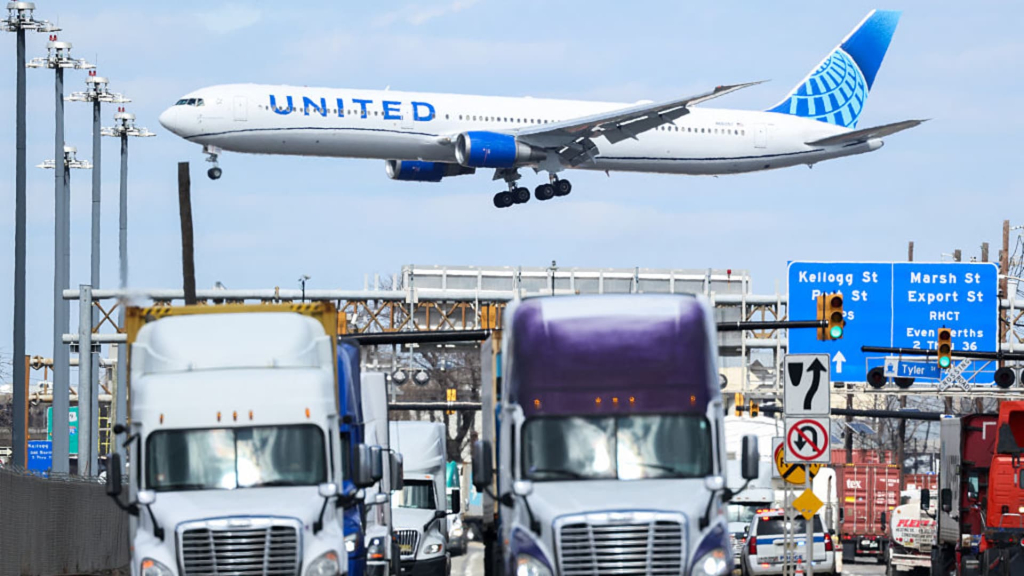United Airlines announced plans to reduce domestic flight capacity this summer, a move prompted by disappointing demand for domestic travel, even as interest in more expensive international journeys remains robust.
The airline revealed on Tuesday its intention to decrease domestic capacity by approximately 4% starting in the third quarter. Expectations for the second quarter are for adjusted earnings per share to fall between $3.25 and $4.25, aligning with market forecasts, driven by strong demand in premium cabin and international travel segments.
In its first-quarter results, United recorded a profit of $387 million, or $1.16 per share, a notable turnaround from a loss of $124 million, or 38 cents per share, during the same period last year. Adjusted earnings of 91 cents per share exceeded Wall Street’s expectations of 76 cents.
During the first quarter, unit revenue from domestic flights decreased by 3.9% compared to the previous year, while international routes saw an increase of over 5%. Total revenue reached $13.21 billion, marking a more than 5% increase year-over-year, though it slightly fell short of the $13.26 billion that analysts had predicted, as reported by LSEG.
Here is a comparison of United’s financial performance for the quarter ending March 31 against Wall Street’s expectations, based on LSEG estimates:
- Earnings per share: 91 cents adjusted vs. 76 cents expected
- Revenue: $13.21 billion vs. $13.26 billion expected
The current data illustrates how profitable carriers like United and its competitor, Delta Air Lines, continue to benefit from travelers willing to spend more on premium seating and upgraded services, despite prevailing economic concerns that have impacted consumer sentiment amid factors such as President Donald Trump’s trade war and significant government layoffs.
Last week, Delta announced it could not reaffirm its full-year outlook due to market uncertainties.
While United did not revise its full-year forecast during Tuesday’s announcement — maintaining its earlier projections of adjusted earnings per share ranging from $11.50 to $13.50 — it did caution that should a recession occur, adjusted earnings could fall to between $7 and $9 per share.
This is breaking news. Check back for updates.


























